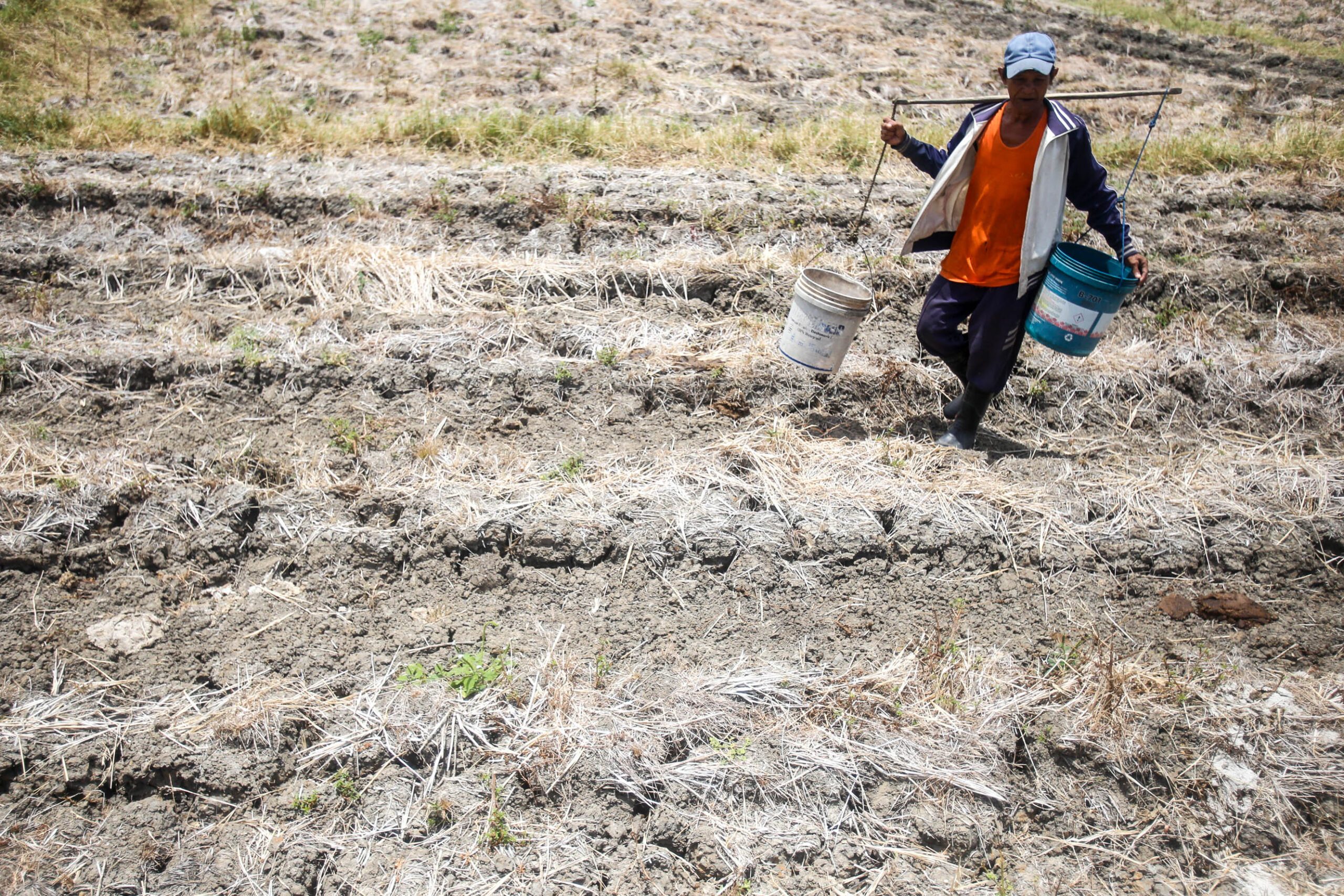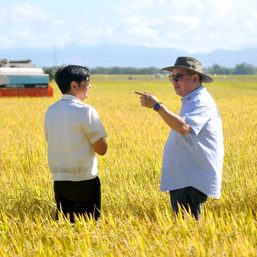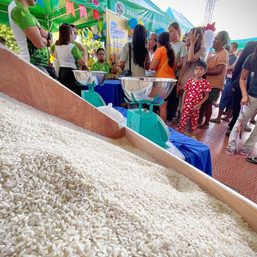SUMMARY
This is AI generated summarization, which may have errors. For context, always refer to the full article.

MANILA, Philippines – After the government committed to subsidize rice retailers that bewailed the sudden implementation of the price cap, it should now consider helping farmers, said Joji Co, president of Philippine Confederation of Grains Association.
In a Radyo 5 interview on Friday, September 8, Co said that on top of the price cap that is affecting the industry, farmers are bearing the brunt of the rising costs of fertilizers, crude oil, and pesticides.
Co said the Department of Agriculture (DA) should compute the total production costs of farmers. President Ferdinand Marcos Jr. is the concurrent agriculture secretary.
“Gaya itong nangyaring nagbigay tayo ng mga subsidiya, ayuda sa mga retailer…tingnan po din natin siguro magkano talaga production cost [ng magsasaka] para…mag-allocate po tayo ng ayuda para sa magsasaka,” he said.
(Like what happened with retailers that they were allotted subsidy, aid, let’s look at how much are farmers production costs so we could allocate aid for them.)
To stop the rising prices of rice, the President imposed a price ceiling that took effect last Tuesday, September 5.
The government also announced early this week that it would earmark P2 billion to assist rice retailers, who bought expensive rice and were suddenly compelled to sell their supply at cheaper prices.
In a previous Radyo 5 interview, Frederic Dy, president of the Grains Retailers Confederation of the Philippines, said palay prices must drop to P16 to P18. At which point the retailer would buy rice at P38/kilo and then sell it at the price cap set at P41/kilo for regular milled rice.
Dy said P16 to P18 is not enough to cover the amount spent by farmers. As the industry – from wholesalers, importers, millers, retailers– adjust to the price cap, it’s the farmers who will bear the brunt of cheap rice.
“’Yung wholesaler pipiliting bumili ng murang palay, farmers nanaman ang tatamaan,” Dy said. (The wholesaler will insist on buying palay at a cheaper price, which in turn will hurt the farmers.)
Farmers group Kilusang Magbubukid ng Pilipinas criticized the government for resorting to a stop-gap measure instead of boosting the production capacity of farmers.
“Artificially lowering the retail prices of rice without addressing the high cost of farm inputs and other long-standing problems of the domestic rice industry is counterproductive, and will considerably favor big rice traders, importers, and the rice cartel.” – Rappler.com
Add a comment
How does this make you feel?
![[ANALYSIS] EO 39 makes no sense: Refuting the reasons for a price ceiling on rice](https://www.rappler.com/tachyon/2023/09/tl-rice-price-cap.jpg?fit=449%2C449)








![[Just Saying] SONA 2024: Some disturbing points](https://www.rappler.com/tachyon/2024/07/TL-marcos-sona-points-july-23-2024.jpg?resize=257%2C257&crop=335px%2C0px%2C720px%2C720px)






![[ANALYSIS] How one company boosts farmer productivity inside the farm gate](https://www.rappler.com/tachyon/2024/06/bioprime-farmgate-farmer-productivity-boost.jpg?resize=257%2C257&crop=465px%2C0px%2C1080px%2C1080px)

There are no comments yet. Add your comment to start the conversation.